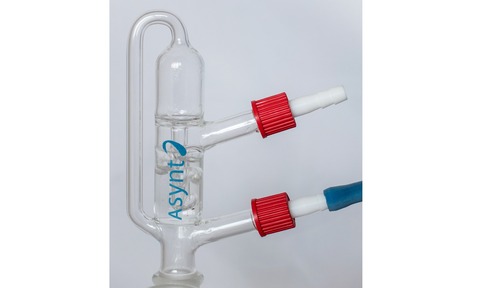
Asynt has introduced a range of gas bubblers that enable chemists to visibly confirm their reaction system is being flushed with an inert gas such as nitrogen.
A gas bubbler consists of a glass bulb filled with a small amount of fluid such as mineral or silicone oil.
For use with reactions the inlet to the bulb is connected to a ground glass joint, while the outlet is vented to the air.
Gas bubblers are used to exclude air from a reaction or can help with purging systems such as a Schlenk line.
Used in the former case, the gas bubbler is often fitted on the condenser of the reaction set-up. In the latter case, the gas bubbler is typically installed at the end of the inert gas manifold on a Schlenk line to prevent contamination by atmospheric oxygen and water.
Asynt gas bubblers provide a one-way valve through which nitrogen, evolved gases or solvent vapours from the inlet will bubble through the fluid before being vented to the atmosphere.
The rate at which bubbles form in the gas bubbler fluid enables users to adjust the inlet flow of inert gas to an appropriate rate to ensure that a consistent inert atmosphere is maintained.




